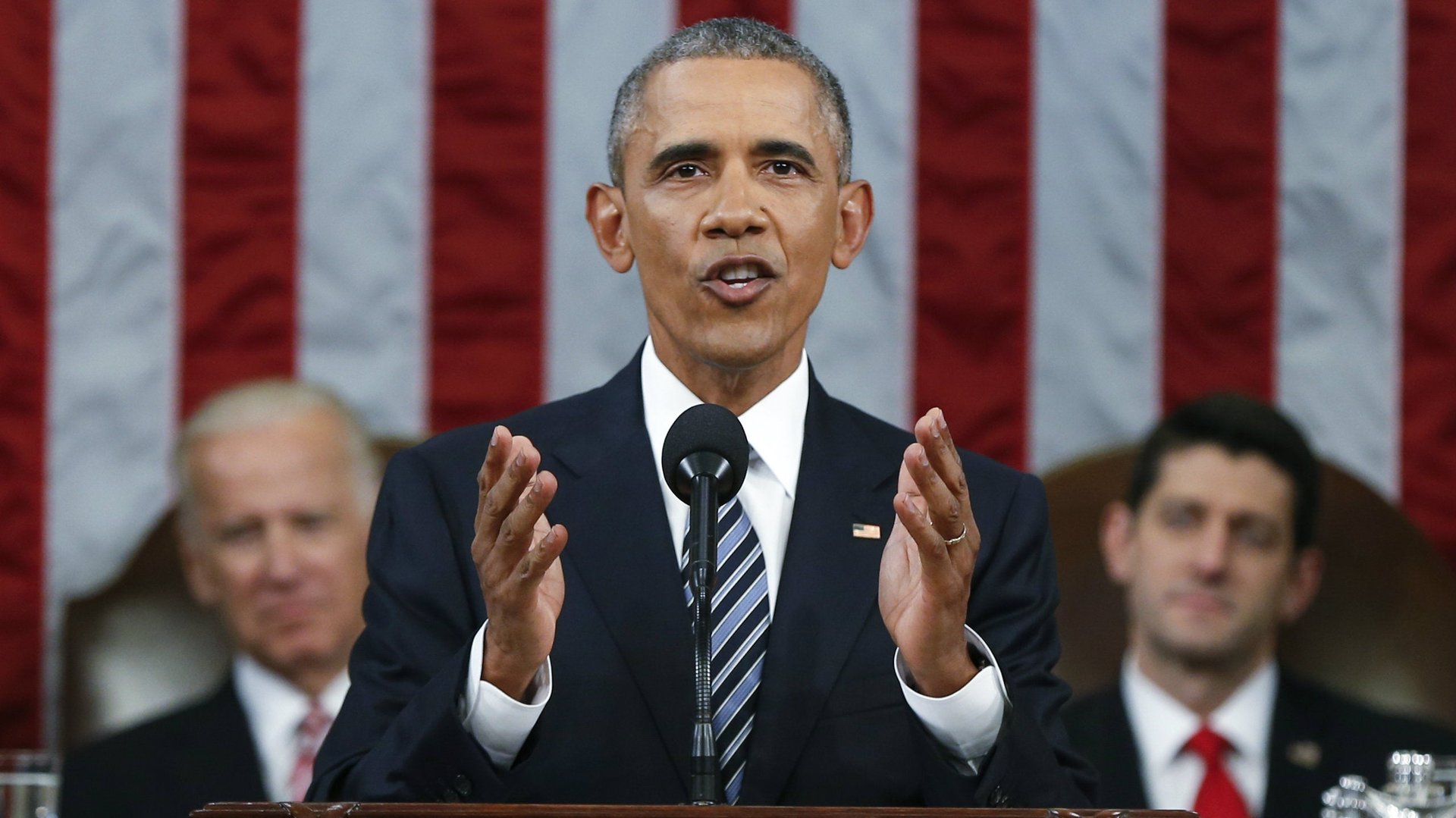Even Barack Obama can’t stop talking down to Africa, critics say
President Barack Obama, the self-described first Kenyan-American to have ever occupied the Oval Office, has been criticized for providing a simplistic characterization of Africa during his last state of the union address delivered yesterday (Jan. 12).


President Barack Obama, the self-described first Kenyan-American to have ever occupied the Oval Office, has been criticized for providing a simplistic characterization of Africa during his last state of the union address delivered yesterday (Jan. 12).
Africa was not a significant part of Obama’s speech, an annual tradition given by US presidents to a joint session of the country’s legislature. But the few mentions Africa got in the address have caused consternation in some quarters, with people suggesting that even the first African-American president can’t seem to move beyond old tropes about the continent as a place riddled with war, hunger and disease.
“Even without ISIL, instability will continue for decades in many parts of the world — in the Middle East, in Afghanistan and Pakistan, in parts of Central America, Africa and Asia,” Obama said according to prepared remarks.
Some on Twitter interpreted this framing as Obama perpetuating an image of Africa as a land of war and conflict.
The problematic portrayal of the continent did not end there, according to critics. Of particular concern was his mentioning of the US role in fighting Ebola last year and his explanation as to why it was important for America to engage in these kinds of interventions. “When we help African countries feed their people and care for the sick, that prevents the next pandemic from reaching our shores,” he said.
Mentioning the continent in this context offers the American audience a limited view of the continent, critics say.
Despite his enormous popularity in Africa, Obama has had to deal with criticism throughout his time in office that he hasn’t engaged fully with the continent. While there was the expectation that the son of a Kenyan father may look at his ancestral homeland differently than his predecessors, critics suggest there is nothing much to distinguish Obama from American leaders of the past.
During his most recent trip to the continent, he was accused of talking down to African leaders after he suggested that more rulers on the continent needed to respect democracy and adhere to term limits. “Obama acted like a colonial headman lecturing the natives on how to behave as good subjects,” Ugandan journalist Andrew Mwenda complained at the time.
This criticism, however, is unfair. Obama is after all an American president and not an African leader. So its no surprise that he spent the majority of his time in power focused on problems confronting America. These, it’s worth remembering, included a collapsing economy and two wars that the country is still struggling to extricate itself from.
Africa watchers might be justified to expect nuance from this president in particular so there is a sense of disappointment when Obama seems to sound no different from any other recent US president on African affairs. That said, while it is indisputable the continent is in the midst of a revival, numerous challenges remain, including leaders who overstay their welcome and states that are struggling to feed their people.
Meanwhile it is also important to note that not all Africans are critical of Obama. Some love the man so much they will wake up at three in the morning to see him deliver his last state of the union address.